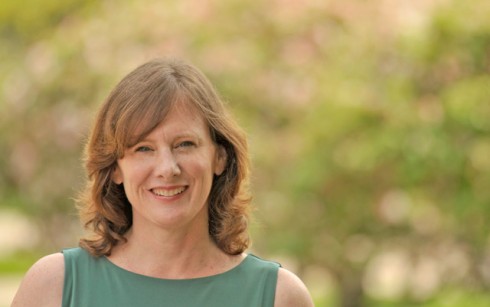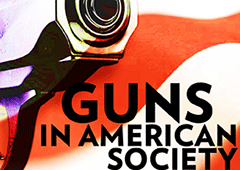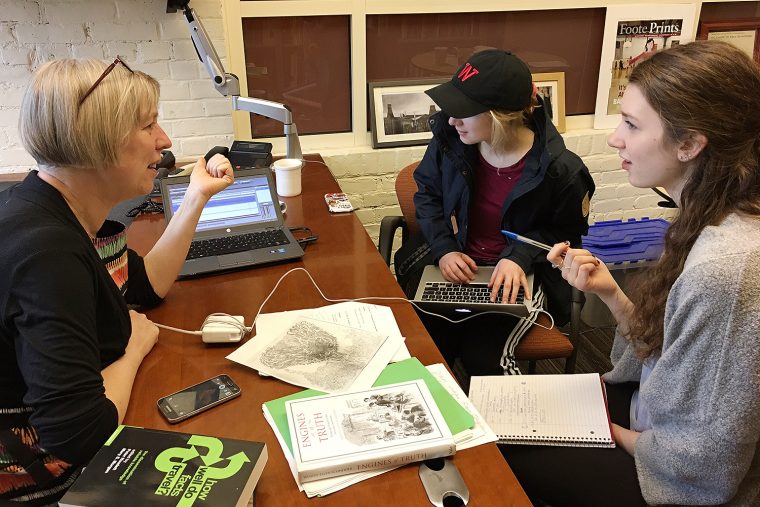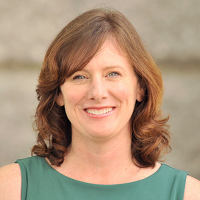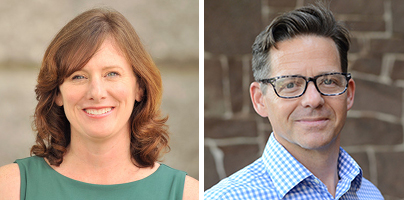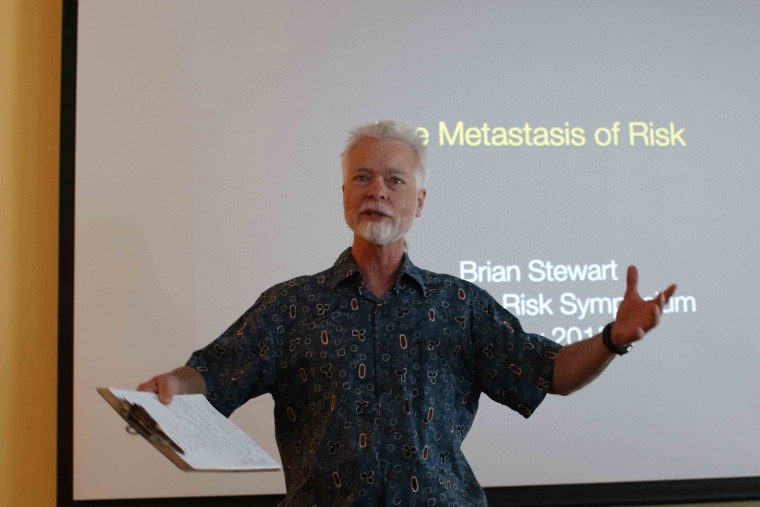On May 21, Jennifer Tucker, associate professor of history, spoke at the Arsenals of History Symposium held at the Buffalo Bill Center of the West’s Cody Firearms Museum in Cody, Wyo., May 21–23. The theme of the second annual symposium was "Ethics of Firearms in Museums." The symposium brought together authorities in the field to discuss practical guidelines for museums with firearms. Other presenters came from the Autry Museum of the American West, the Art Institute of Chicago, Colonial Williamsburg, Dutch National Military Museum, the Metropolitan Museum of Art, NRA Museum, the Smithsonian Institution, U.S. Marshals Museum, Springfield Armory National Historic Site,…
In this recurring feature in The Wesleyan Connection, we highlight some of the latest news stories about Wesleyan and our alumni. Recent Wesleyan News 1. President Michael Roth publishes op-eds in The Washington Post titled, "We can't let cynics ruin college," and "What is college for? (Hint: It's not just about getting in.)." He also sat for an "On Leadership" interview with The Chronicle of Higher Education. 2. The Conversation: "The dangerous belief that white people are under attack" Assistant Professor of Psychology Clara Wilkins writes about her research on perceptions of reverse discrimination in light of recent societal trends. 3. Marketplace: "Here comes the tax bill…
Guns in American Society, this year’s Shasha Seminar for Human Concerns, will be held on campus on Friday and Saturday, Oct. 27-28. Made possible by a generous grant from the Shasha family, the 16th annual event will convene experts, including Wesleyan faculty and administrators, as well as alumni from across the country, to examine current debates about the role of guns in American society and discuss ways of reducing the national incidence of gun violence. According to seminar organizer Jennifer Tucker, associate professor of history and science in society and researcher in the history of technology, law and culture, guns are a topic…
This year, students in Associate Professor of History Jennifer Tucker’s class, Seeing a Bigger Picture: Integrating Visual Methods and Environmental History, had an opportunity to share what they learned in an unusual format. They produced an hour-long radio program, which debuted on WESU 88.1 FM on Memorial Day. It will air again on the station this summer, and can be heard on wesufm.org or on SoundCloud. The course introduces students to key landmarks in the visual history of environmentalism and environmental science, from the 18th century to the recent past. The class studies the power and the limits of visual…
The pseudoscientific myths about love and sexuality that abounded in the Victorian era, many of which seem "cruel and oppressive" by today's standards, could also offer women relief from the era's "rigid gender politics," according to Associate Professor of History Jennifer Tucker, who comments on the topic for a Broadly article. For much of the 19th century, the Western world was fascinated with a variety of pseudosciences, or theories that lack a basis in the scientific method. "Definitions of science were malleable and hotly contested in the 19th century," said Tucker, who is also associate professor of science in society, associate professor…
On Sept. 14-15, Jennifer Tucker, associate professor of history, organized a conference titled “Firearms and the Common Law Tradition," which was held at The Aspen Institute in Washington, D.C. In this Q&A, Tucker discusses the significance of the conference: Q: What was distinctive about the Firearms and the Common Law Conference? A: As far as we are aware, it was the first time that most of the historians and legal scholars involved in the debate over the Second Amendment and common law traditions relating to firearms have been in the same room and exchanged their views face to face and in pre-circulated papers.…
Jennifer Tucker, associate professor of history, is organizing a conference titled "Firearms and the Common Law Tradition" to be held at the The Aspen Institute in Washington, D.C., Sept. 14-15. Topics will include "The Uses of Guns," "Laws Regulating Carriage of Guns," "Guns and the Supreme Court: The Influence of History," and "Guns and Constitutional Rights." Focused on the ways in which historical arguments have become important for the judicial debate about guns in America, the discussion will feature Darrell Miller, professor of law at Duke University School of Law and Eugene Volokh, the Gary T. Schwartz Professor of Law at the UCLA…
Associate Professor of History Jennifer Tucker is the co-author of an op-ed in the Boston Globe titled, "What the Clean Air Act can teach us about reducing gun violence." Tucker and co-author Matthew Miller of Northeastern University write, "The recent scandal over Volkswagen’s polluting engines vividly illustrates the contrast between the way Americans, and in particular elected officials, treat guns and the way we (and our elected officials) treat cars — both of which kill approximately 32,000 Americans every year." The Clean Air Act, passed in 1970, has averted tens of thousands of premature deaths though "a systematic and scientific approach to…
At a time when gun deaths are spiking and Congress has failed to enact significant legislation to tackle the problem, Associate Professor of History Jennifer Tucker writes an op-ed looking at how we got here. She contends that it is Hollywood’s version of history—not reality—that is behind the belief that guns have been a critical part of American culture over centuries. She writes: The 1953 movie “Shane” exemplifies the narrative of a “good man with a gun.” Responding to a woman’s wish that guns be banished, Shane replies: “A gun is just a tool, Marian. It’s as good or bad as…
Two Wesleyan faculty received NEH Public Scholarships to encourage new research and support their upcoming publications. Only 36 writers in the country received the award.
The Public Scholar program, a major new initiative from the National Endowment for the Humanities, is designed to promote the publication of scholarly nonfiction books for a general audience. On July 29, the NEH awarded a total of $1.7 million to 36 writers including Wesleyan’s Jennifer Tucker, associate professor of history, and Andrew Curran, the William Armstrong Professor of the Humanities and professor of French.
On May 2, the Wesleyan Symposium on Risk brought together faculty and students for an interdisciplinary discussion of risk. The event was sponsored by American Studies, the Center for the Humanities, the College of Letters, Feminist, Gender and Sexuality Studies, the Patricelli Center for Social Entrepreneurship, the Neuroscience and Behavior Program, the Science in Society Program, and the Huffington Foundation Professor of Economics and Environmental Studies support funds. (Photos by Hannah Norman '16) (more…)
As a 2015 Humanities Research Centre Visiting Fellow, Associate Professor Jennifer Tucker will study Victorian sustainability, photography, law and river pollution prevention reform at Australian National University (ANU) in Canberra, Australia. Her appointment will be May 15-July 15. Tucker's ongoing research, tentatively titled “Science Against Industry: Photographic Technologies and the Visual Politics of Pollution Reform,” traces the historical roots of the use of visual evidence in environmental science and pollution reform. Using nearly 300 visual representations (drawings, engravings photographs, and graphs) from archives and libraries, many of which have never previously been studied, she analyzes the scientific impact of new forms of visual representation in chemical climatology and examines the…


